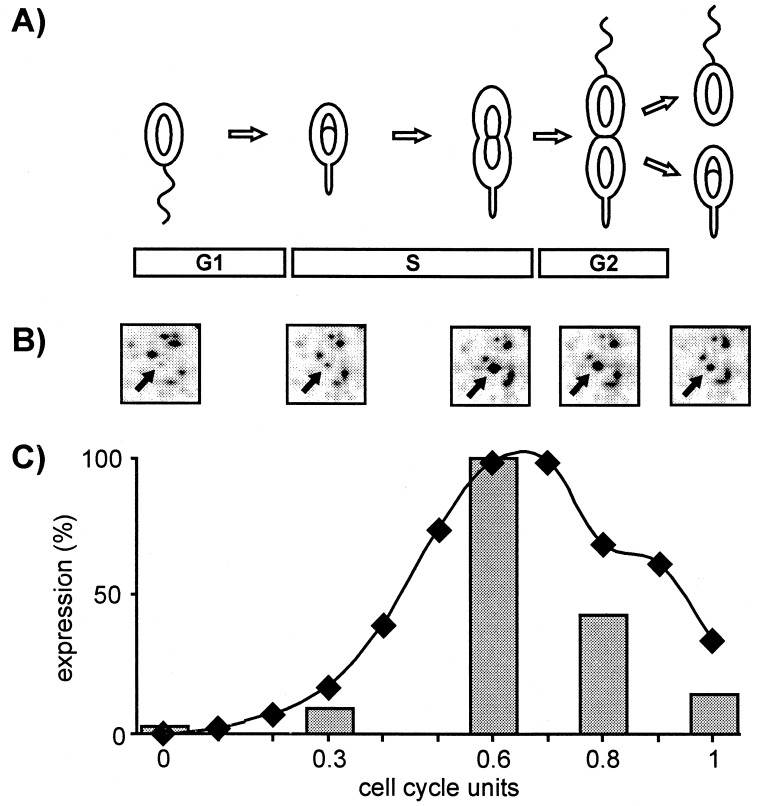Figure 1.
Cell cycle of C. crescentus and cell cycle-dependent protein expression of the CtrA regulator. (A) Motile replication silent swarmer cells (G1 phase) differentiate into stalked cells by shedding the polar flagellum and growing a stalk at the same pole. DNA replication is initiated in stalked cells and continues as cells elongate and increase in mass during S phase. A new flagellum is assembled in the predivisional cells at the pole opposite the stalk. On completion of DNA replication, the newly synthesized chromosomes segregate to the poles, and an asymmetric cell division generates two new daughter cells (G2 phase). (B) Protein synthesis was measured during the cell cycle by pulse labeling cells of a synchronized culture with [35S]methionine in G1 (0 cell cycle units), early S (0.3), late S (0.6), G2 phase (0.8), and immediately after cell division (1.0). The labeled extracts were separated on 2-D gels, and fluctuations were determined by quantifying and comparing the spot intensities. The example shows a small area of the 2-D gels with the arrows marking the CtrA protein. (C) Oscillation of ctrA expression during the C. crescentus cell cycle. Relative levels of ctrA mRNA (diamonds) were taken from ref. 8, and CtrA protein synthesis (bars) was quantified from the 2-D gel spots shown in B for each time point investigated.

